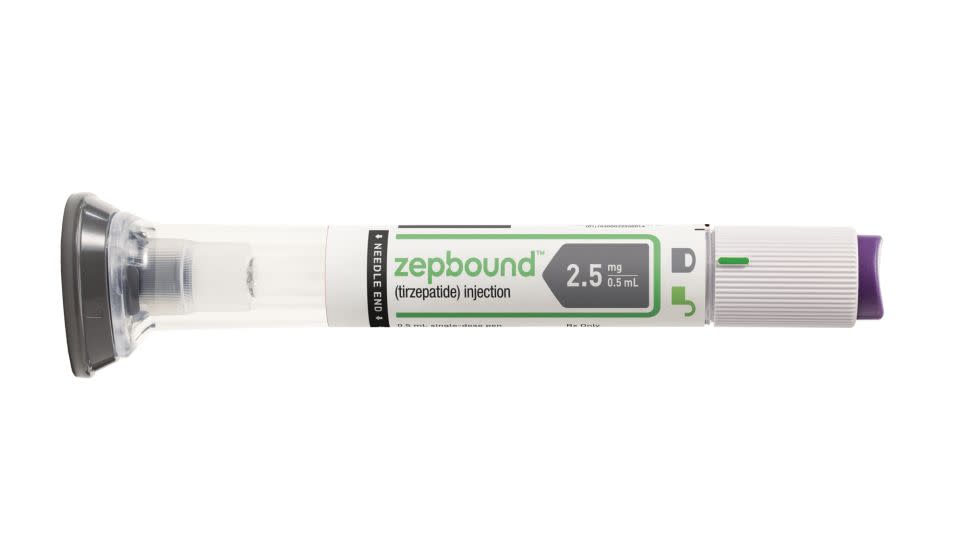Weight loss drug Zepbound is now available, Eli Lilly says

Drug manufacturer Eli Lilly announced Tuesday that its flagship weight loss medication, Zepbound, is now available for patient use.
Tirzepatide, its active ingredient, had been approved by the US Food and Drug Administration as a treatment for type 2 diabetes called Mounjaro. Last month, the FDA approved it for use in chronic weight management, placing an official stamp of approval on a medicine widely prescribed off-label for weight loss.
Zepbound is intended for adults with obesity, or those who have a BMI higher than 30. It can also be prescribed for people who are overweight — with a BMI of 27 or higher — and who have weight-related medical problems, including hypertension, type 2 diabetes, obstructive sleep apnea or cardiovascular disease.
Tirzepatide works by mimicking two hormones, GLP-1 and GIP, which stimulate the release of insulin in the body. It reduces users’ appetites and slows the rate at which the stomach empties after a meal, helping them feel fuller. Semaglutide medications for weight loss, like Novo Nordisk’s Wegovy, focus on just targeting GLP-1.
The medication will be available in six doses, ranging from 2.5 milligrams to 15 milligrams, through a prescription that can be filled at retail and mail-order pharmacies, Lilly said in a news release.
Like other weight loss drugs, Zepbound is an injection patients give themselves once a week. In the news release, Lilly recommends that the drug be used in combination with a reduced-calorie diet and increased physical activity.
However, Lilly warned that it should not be used alongside other similar weight loss medications such as Ozempic and Wegovy.
In clinical trials, Zepbound was found to yield more than 20% average weight
loss at higher doses over 72 weeks, more than seen with
other approved weight loss medications.
According to the FDA, Zepbound’s main side effects include gastrointestinal issues like nausea, vomiting, constipation and diarrhea.
The drug’s label will also have warnings about the potential for inflammation of the pancreas, gallbladder problems, low blood sugar, acute kidney injury, diabetic retinopathy or damage to the retina in people with type 2 diabetes mellitus, and suicidal behavior or thinking.
Before insurance, Zepbound will cost about $1,060 per month, slightly higher
than Mounjaro’s list price of $1,023.
However, it’s still unclear how broadly Zepbound will be covered. Medicare and Medicaid are prohibited from covering obesity medications. Lilly said it is releasing a savings card for people with commercial insurance to get Zepbound for $25 for a one- or three-month prescription if their plans cover it. For those whose plans don’t cover Zepbound, the savings card would lower the cost to $550 per month, or about half the list price.
Amid skyrocketing demand for weight loss drugs, many of the therapies have faced supply shortages. Mounjaro is still “in shortage” on the FDA’s drug shortages list, but all dose sizes are labeled as available.
For more CNN news and newsletters create an account at CNN.com

